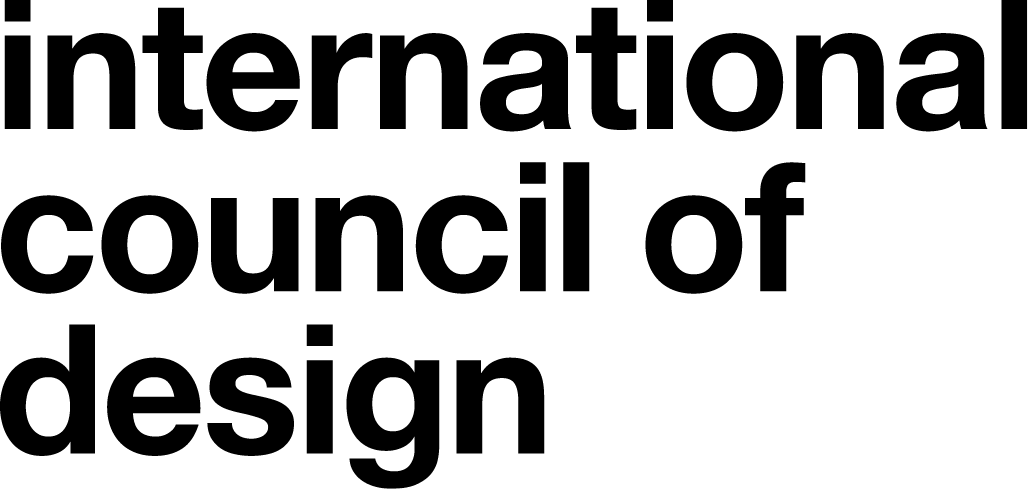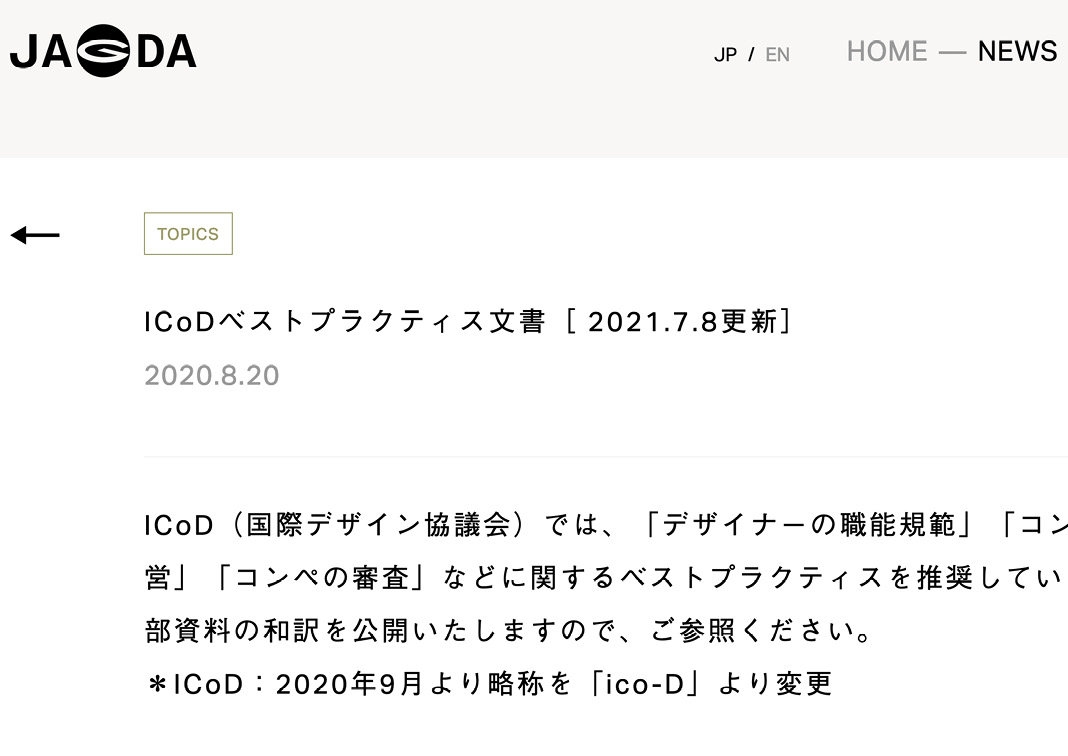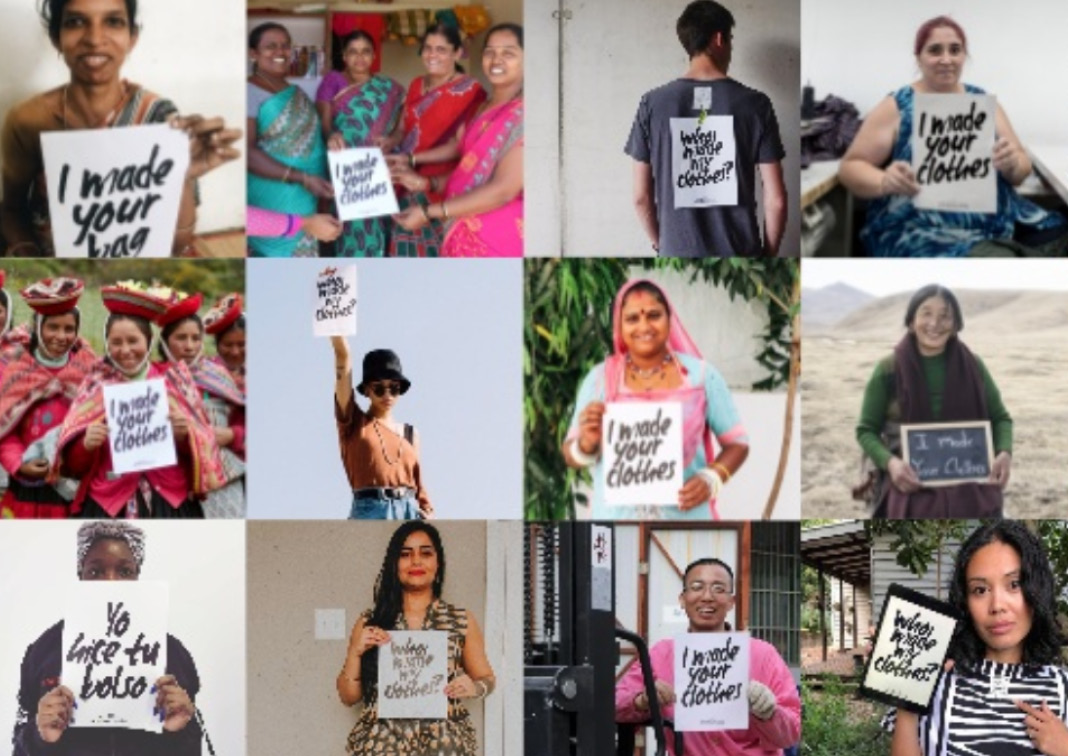
 | view in browser | |
|
newsletter bi-monthly bulletin of the International Council of Design |
July 2021 | |||||||||
01
Reading listFor the Secretariat in Montréal, it is currently the middle of the summer holiday and a time when we can catch up on our reading. For this occasion, we have compiled a reading list of what we found interesting in the last months to share with you—from podcasts exploring different facets of design to meditations on the future of design, from different perspectives of designing for 'each and all' to design criticisms and examinations of the failings of certain established design canons. We hope you will find our selection interesting, thought-provoking and a little fun! The google link will bring you to the list of our suggestions. Enjoy, and should you have any recommendations to add, please share them with us in the area below the list! |
02
ICoD in the pressThe Council comments on the practice known as 'hiring homework' or'creative tests', asking potential candidates for a job or contract to perform professional tasks, without compensation, in the hopes of landing the work. Appearing in the publication Communication Arts (United States), the article concludes that the practice is legally questionable, and professional designers are ill-advised to accept to work in these conditions. This practice undermines professionalism and errodes the working conditions of designers while presenting very significant hidden risks to the perpetrators.
|
|||||||||
03
Member NewsThe ICoD Professional Code of Conduct for Designers has been translated into Japanese by ICoD Member JAGDA. In an interview with Massmedian (available in Japanese only, but accessible through Google translate), JAGDA's International Committee Chairman, Katsuhiko Shibuya stressed the need for designers to become self-aware of their status as skilled workers. Pointing to the Code of Conduct as a guide for this, he stated his belief that the international standard would be persuasive to prospective clients in cementing this expert role and establishing baselines for contractual agreements. |
04
OpinionTechnology ethnographer Tricia Wang for Fast Company questions the “How might we?” (HMW) methodology asking whether it is improving design’s impact (making better products and services) or if it is actually exacerbating a lack of stakeholder input that is increasingly producing short-sighted or even insular solutions. Focusing on the adoption of this method in tech—and pointing to very specific case studies—the author posits that “Designers are experts at using shortcuts and oversimplifications to quickly ground in a new subject matter but many don’t ever intend to put in the work beyond framing provocative statements and being the mighty bringers of insight. The HMW is an enabling tool for this.” |
05
INDIGO'How will we live together?' is curator Hashim Sarkis's call to architects worldwide “to imagine spaces in which we can generously live together”, and the theme of the 2021 Venice Biennale. In these troubled times, this theme is relevant to architects and designers alike. We are thrilled to highlight Jefa Greenaway (Wailwan, Gamillaraay; co-author of the International Indigenous Design Charter) who co-created the Australian pavilion: 'Inbetween'—a mesmerizing multi-channel digital installation that explores Indigenous design and co-authorship.
|
||||||||
06
Intellectual propertyThe issue of 'fakes' and the use of brand copyrights across jurisdictions is complicated in the best of cases. Concepts like 'legal fakes' (copies of an existing design or brand name that are not technically against the law) further muddy the waters. It is often too easy to copy a well-known chair, logo or dress and sell it under another name or in a jurisdiction where the IP has not been legally registered. Though most designers do not have the deep pockets and international legal teams of large international brands, the success of high-profile court cases set precedents for the industry that are hard to ignore.
|
07
Systemic designBuckminster-Fuller stated that “You never change things by fighting against the existing reality. To change something, build a new model that makes the old model obsolete.” |
08
ICoD newsThe ICoD Executive Board has co-opted a new Member, Michelle Renee. Vice President of Creative Strategy for the Canadian Public Relations firm NATIONAL in Vancouver, Michelle will assume the role of Board Member of the Council for the remainder of the term. She has been mandated to contribute her expertise in public relations and communications to the development of the Council's ongoing communications strategy.
|
||||||||
|
||||||||||
|
The International Council of Design |
ICoD Secretariat: Phone: +1 514 875 7545 Email: info@theicod.org theicod.org |
Follow ICoD: facebook | twitter | instagram To update your preferences, please click here. |